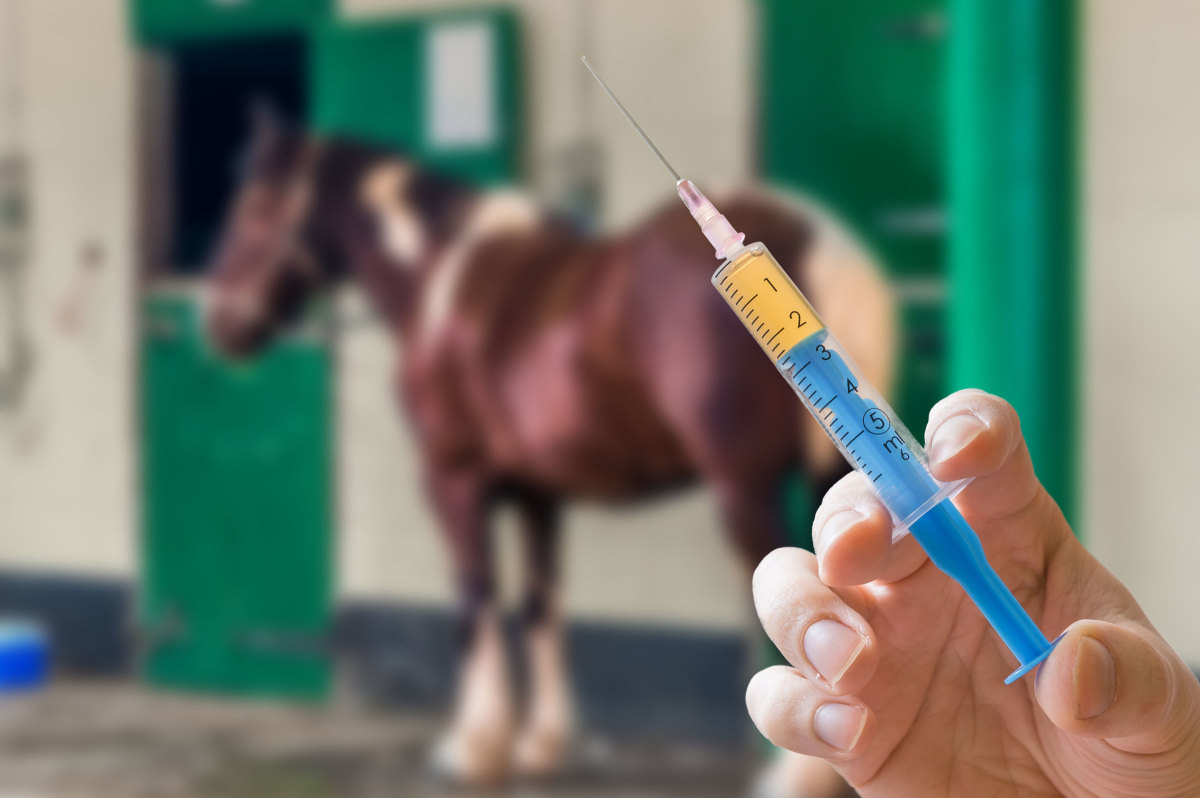
Veterinarians understand about the immune system’s complex role in keeping horses healthy, but horse owners might not. We posed several questions about the current state of the science of immunology to David Horohov, PhD, chair of the Department of Veterinary Science and director of the Gluck Equine Research Center, and his answers are below.
What are the important areas of immunology research in equine veterinary medicine today?
“One area of continuing interest and effort is vaccine development,” Horohov said. “This includes both the generation of new vaccines against important agents for which no vaccine is currently available and the refinement of current vaccines to improve their efficacy and safety. Each of these areas requires an improvement in our understanding of the pathogenic mechanism of the infectious agent and the molecular and cellular underpinnings of the protective immune response.
“Another area of intense interest is the development of methods to manipulate the immune response,” he continued. “This includes efforts to enhance immune function that is impaired by underlying disease of other conditions and those to suppress pathologic immune responses such as occur in allergies and autoimmune diseases. In the past, these efforts involved fairly non-specific approaches whose results were not always predictable. Now, with a better understanding of how the immune system is regulated, the hope is to apply specific approaches to fine-tune the immune response.
“Another area of interest is the intersection between genomics and immunology,” noted Horohov. “Work is underway to better understand the genetic basis for disease susceptibility, and much of this will likely point back to the immune system as the key determinant for diseases’ resistance or susceptibility. This includes the possibility of developing better vaccines or alternative approaches for providing protection from infections.”
Why is it important to communicate about immunology when talking to horse owners?
“The overall health and well-being of a horse is dependent upon its immune system being functionally capable of providing protection against microbial invaders,” explained Horohov. “This is evidenced by the extreme susceptibility of young foals to infectious disease. Without the protection afforded by maternal antibodies, as a result of the failure of passive transfer, the chances of a foal surviving the first few weeks are quite slim. Likewise, failure to vaccinate young horses leads to increased risk of infections throughout their first years of life.”
How do you explain how immunity is built to horse owners?
“Being from Kentucky, I use the example of a basketball player,” said Horohov. “While an individual may have the inherent ability to be a great player, without practice and proper coaching, that potential may never be realized. Likewise, the immune system is capable of providing exquisite protection against many infectious diseases. However, it needs practice and coaching in the form of routine vaccination. Along the same lines, proper nutrition is also important for both the optimal performance of the athlete and the immune system.”
How does immunology fit in with a horse owner discussion about vaccination recommendations?
“They are inseparable,” Horohov stated. “A vaccination is the opportunity to engage the immune system to its fullest potential. The successful vaccine will induce the protective immune response that either prevents infection from occurring or limits the infection so that disease does not develop.”
Can you speak to vaccination risks?
“Vaccination, like all medical procedures, carries with it some risk for adverse consequences,” said Horohov. “The very act of vaccinating a horse means the immune system is being stimulated. Sometimes this stimulation can lead to untoward responses.
“Some of this risk is managed by using proper techniques when administering the vaccine. Improvements in vaccine design have also helped to reduce the risk of adverse reactions to the vaccine of one of its components. In particular, the availability of multiple products using different components means it is possible to avoid some reactions by varying which vaccines are used. The key to remember is that there is a greater risk for infection if the horse is not vaccinated.”
Editor’s note: Watch for a video from Dr. Horohov coming soon on Merck Health Matters.








